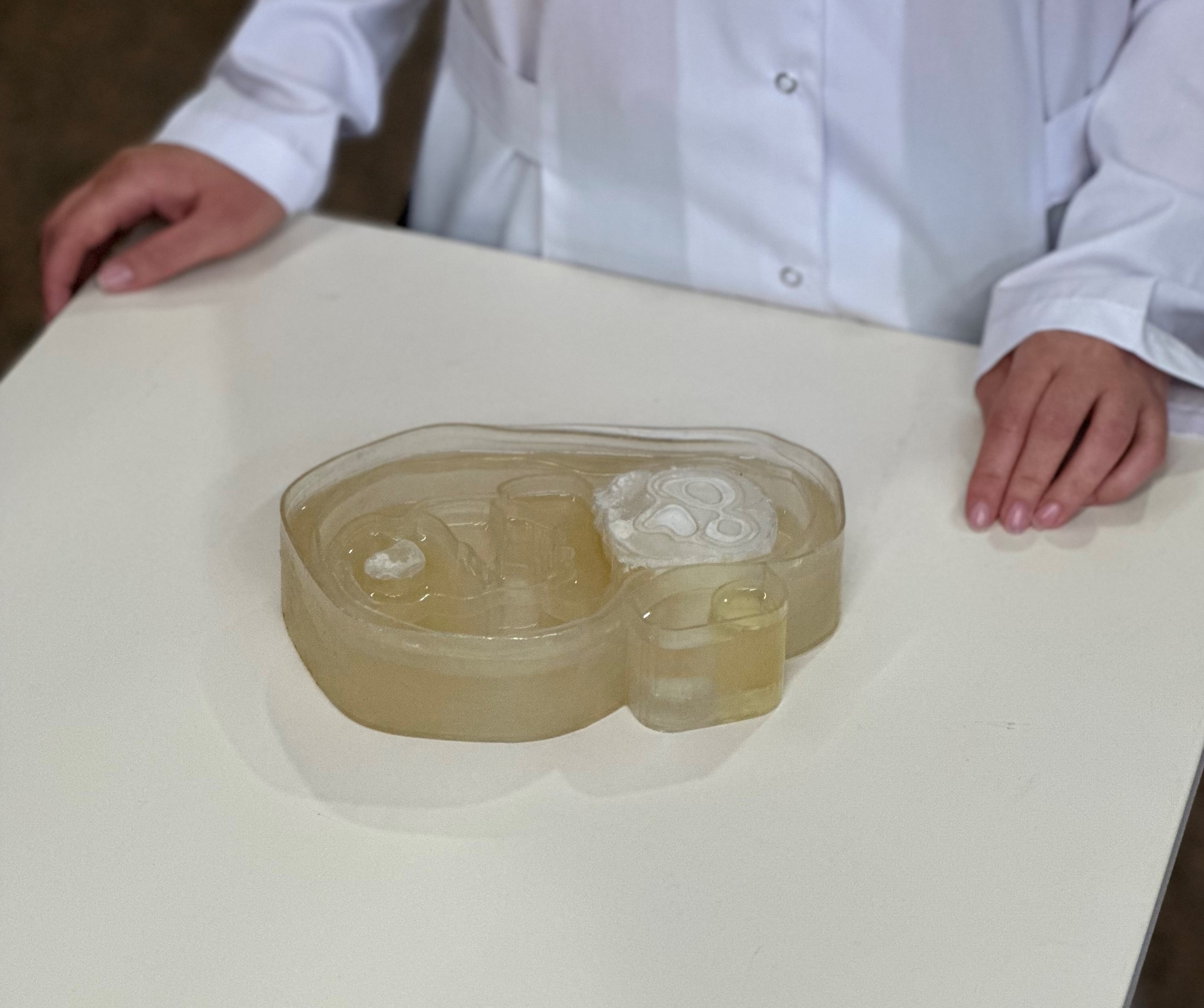In a breakthrough development, scientists at the Centre for Diagnostics and Telemedicine have created Russia's first fetal phantom to enhance the technology of magnetic resonance imaging (MRI) scanning for pregnant women. The announcement was made by Anastasia Rakova, Deputy Mayor of Moscow for Social Development.
Phantoms are devices mimicking human organs, tissues and body parts necessary for practising various medical procedures .This innovative development aims to reduce the time and complexity of the study, making it more widely available as an additional diagnostic tool for pregnant women.
According to Rakova, despite its high diagnostic value, MRI technology for detecting fetal anomalies remains underutilized in Moscow, with many opportunities for its implementation remaining untapped. Its use is currently limited due to the complexity in setting up scanning protocols. The new fetal phantom will allow doctors to adjust and refine the scanning technology, improving the quality of images obtained and making it more widespread.
The absence of ionizing radiation and high contrast resolution make MRI an essential tool for assessing various pathological conditions in pregnant women.
When doctors require further clarification during ultrasound examination, they often send patients to MRI. However, few medical organizations currently have the necessary expertise and equipment to perform this examination.
Traditionally, doctors and radiology technicians rely on volunteer pregnant patients to set up scanning protocols, which can be uncomfortable and time-consuming for the mother-to-be. The new phantom will enable researchers to simulate the fetus's anatomy and movements, reducing the need for human volunteers and improving the accuracy of the study.
The phantom was developed by scientists at the Center for Diagnostics and Telemedicine, using gel compositions with signal intensity identical to internal organs of the fetus. The researchers created a simulation of the brain, muscle tissue, lungs, liver, stomach, and bladder of the fetus at 21 weeks of pregnancy.
"We plan to add motor activity to the development to replicate the fetus's natural movements," said Yuri Vasiliev, Senior Consultant for radiology of the Moscow Healthcare Department.
The fetal phantom is designed to train doctors and radiology technicians, evaluate equipment standards in everyday clinical practice, and practice new scanning protocols.
The Center for Diagnostics and Telemedicine is a leading scientific organization in Moscow, focusing on creating and introducing advanced solutions for radiology and instrumental diagnostics into clinical practice.
The project aligns with the national healthcare project goals, aiming to improve the quality and accessibility of medical care for Moscow residents. The center's employees have developed over 800 scientific materials and educational programs, contributing significantly to medical advancements in Russia.

 The project aligns with the national healthcare project goals, aiming to improve the quality and accessibility of medical care for Moscow residents. The center's employees have developed over 800 scientific materials and educational programs, contributing significantly to medical advancements in Russia.
The project aligns with the national healthcare project goals, aiming to improve the quality and accessibility of medical care for Moscow residents. The center's employees have developed over 800 scientific materials and educational programs, contributing significantly to medical advancements in Russia.











.jpeg)











.jpg)








